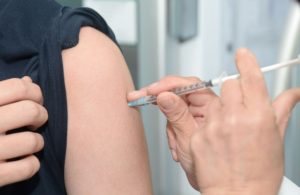
Image courtesy of Unsplash
While estimates vary, achieving herd immunity against COVID-19 will likely require vaccinating at least 70% to 80% of the public, if not more. Some diseases, like measles, require a vaccination rate of 95%, according to the World Health Organization.
Yet, many people in the U.S. public remains guarded about COVID-19 vaccines. Almost one out of three Americans say they definitely or probably wouldn’t get vaccinated, according to a recent survey from The Associated Press-NORC Center for Public Affairs Research. A total of 15% were certain they wouldn’t get vaccinated.
Kaiser Family Foundation research from December found that 27% of the public remains vaccine-hesitant.
A survey from late last year found that 58% of adults aged 50 to 80 would be somewhat or very likely to get a COVID-19 vaccine.
Ultimately, vaccine hesitancy could be a bigger challenge to herd immunity than the current vaccine shortfalls, argued Dr. Scott Gottlieb, former FDA commissioner, in The Wall Street Journal. By April, it is possible that “supply will start exceeding demand,” Gottlieb wrote. “The challenge won’t be how to ration a scarce resource, but how to reach patients reluctant to get vaccinated.”
The most common reason for the reluctance is concern about COVID-19 vaccines’ safety and efficacy. Some 59% of people who are vaccine-hesitant worry about side effects.
Vaccine misinformation is also rampant. Facebook recently announced plans to crack down on false information related to COVID-19 vaccines.
There is, however, reason for optimism. Attitudes toward vaccines are improving in many parts of the world, according to Nature.





I got the Moderna vaccine. The second shot worked me over, headache, body aches, temperature and nauseated. If you want me to ever take another one, the side effects must be minimized.
I got the second dose of the Pfizer vaccine yesterday and aside from a sore arm this morning and some chills and tiredness late last night, side effects seem to be minimal. Everyone’s immune system is different, so they may get slightly different reactions, but it seems that the side effects are insignificant compared to getting severe COVID.